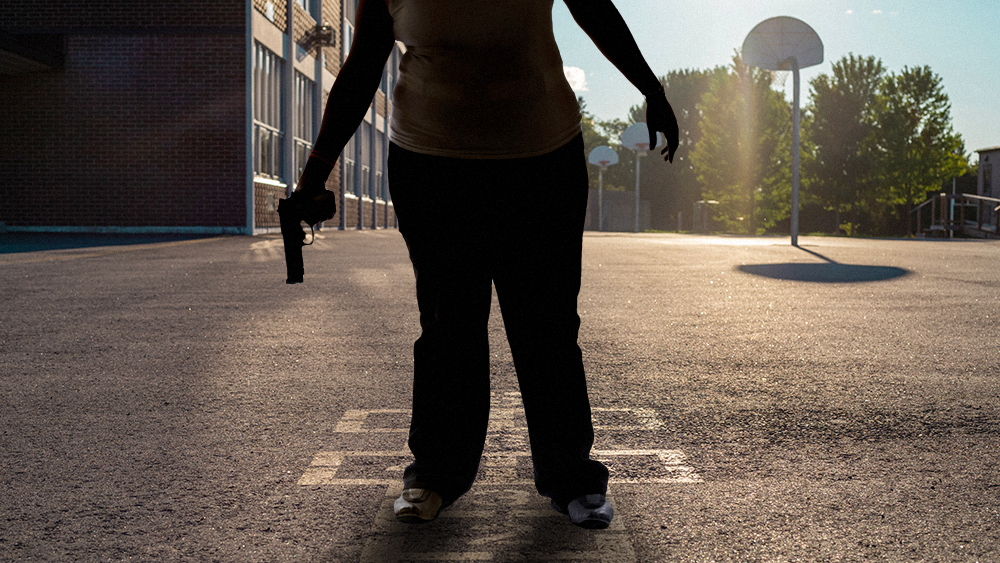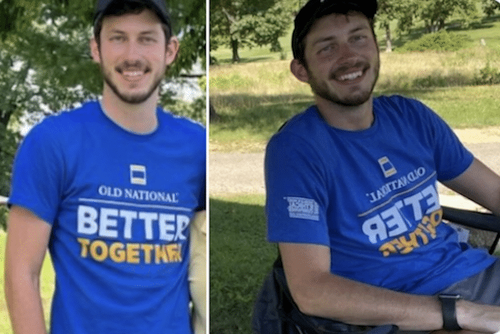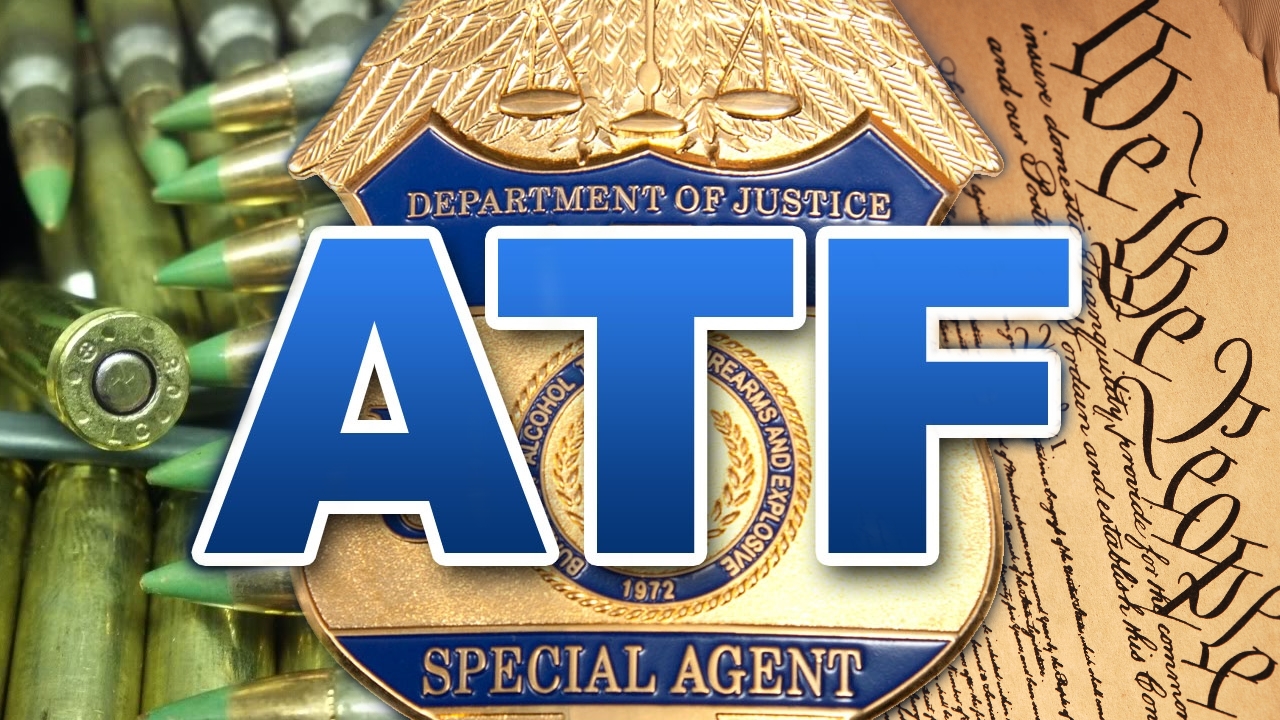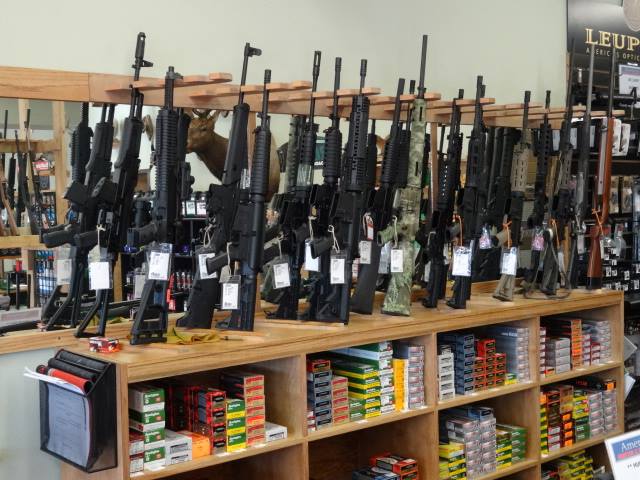Louisville shooter’s manifesto details his intent to push gun control
04/24/2023 / By News Editors

Copycat crimes are motivated by the narcissistic aims of those desperately seeking attention who live life entirely without it otherwise. That may explain why so many mass shooters have followed in the footsteps of Brenton Tarrant, who attacked the Al Noor Mosque and Linwood Islamic Center in Christchurch, New Zealand in 2019 whilst live streaming his murder spree via Facebook. In addition to broadcasting his mass murder, Tarrant also published an online manifesto, shedding light on the fractured psyche of a broken man whose life’s work amounted to the murder of 51 innocent people.
(Article republished from ZeroHedge.com)
It should come as no surprise that Connor Sturgeon, the 25-year-old mass shooter of the Old National Bank in Louisville Kentucky, who decided to livestream his own heinous crime via Instragram would take another page out of Tarrant’s book by authoring his own manifesto. Unlike Tarrant before him though, the rationale behind Stugeon’s mass shooting didn’t paint the picture of the prototypical villain that gun control advocates point to in their attempts to exploit tragedy to attack the second amendment. Instead, Sturgeon’s manifesto showed that the shooting was intended to push a gun control agenda itself.

Mass shooter Connor Sturgeon in Old National Bank attire
According to an exclusive report from The Daily Mail, Sturgeon outlined the basis behind his decision to gun down his colleagues at the Old National Bank in downtown Louisville on April 10th. The three key tenants of the manifesto were to realize Sturgeon’s suicidal ideation and in doing so highlight America’s mental health crisis and put a spotlight on how easy it is to obtain a firearm in his home state of Kentucky. Under Kentucky state law, residents with mental health disorders, violent misdemeanor convictions, and restraining orders against them for domestic abuse are not prohibited from purchasing a firearm. Sturgeon’s mass shooting was meant to bring that policy making into focus following the purchase of the AR-15 assault rifle he used to kill five and injure eight before being killed himself in a firefight with police.
In the wake of the shooting, Stugeon’s family revealed that the shooter had been struggling with mental health problems ranging from anxiety to depression which required him to be medicated. His family expressed fears that Sturgeon developed chronic traumatic encephalopathy following a head injury he sustained during a high school basketball game. However, the extent of CTE in its victims is typically not measurable until a postmortem examination of their brain. The Sturgeon’s family attorney, Peter Palmer, revealed that the shooter’s brain had been tested for CTE during his autopsy but that results would not be conclusive for six to eight weeks.
While the prescription regimen Sturgeon was taking has not been disclosed, other mass shooters in recent years have been revealed to have been taking selective serotonin re-uptake inhibitors, including James Eagan Holmes, culprit behind a murder spree at a movie theater in Aurora, Colorado on July 20th, 2012. SSRIs are prescribed as an anti-depressant due to a mechanism of action that blocks the receptors meant to reabsorb serotonin in order to increase the level of the neurotransmitter in those taking the drugs.
SSRIs are prescribed for a range of mental illnesses from major depressive disorder to anxiety disorders, obsessive compulsive disorder, post-traumatic stress disorder, et al. Despite being commonplace for doctors to prescribe SSRIs to those suffering these mental illnesses, a litany of side effects have brought about doubts in the efficacy of the drugs. Side effects like suicidal ideation and the onset of manic episodes have been factors affecting the decision making of mass shooters like Sturgeon, who himself disclosed his own intention to commit suicide in his thirteen-page manifesto.
In addition to his underlying mental illness, Sturgeon’s manifesto detailed his political ideals as another crucial factor influencing him to commit the shooting. The coalescence of his mental health problems with a clear political agenda mirrors that of Audrey Hale, the transgender killer behind the Covenant School shooting in Nashville, Tennessee on March 27th, 2023. Hale, like Sturgeon, authored her own manifesto detailing the motives behind their crime. While Nashville police have assured the public that the manifesto will be made public, it has yet to be. Sturgeon’s has not been either, at least not accessibly, as so far its release has been limited to The Daily Mail’s review of the manifesto alone. Despite that lack of transparency, the motives behind Hale’s shooting have been claimed to stem from the treatment she was enrolled in to address her gender dysphoria, which appears to have instigated a lethal degree of spite as her diametrically opposed political position to her counselor’s and parents’ views on transgenderism appears to have been a key motive leading to the shooting.
In the wake of Hale’s shooting, transgender advocates took to the Tennessee Statehouse under the guise of a demonstration aimed at promoting gun control. Their protest shows how boisterous calls for gun control have been used to obfuscate more complex social and political issues which those in disagreement contend will not go away simply by restricting the Second Amendment. In the instance of Sturgeon’s manifesto, his aim to commit a mass shooting was done in part to give political allies of his a vehicle to push reactionary gun control legislation. This creates a paradox in which the advancement of gun control measures would simultaneously cater to the whims of a mass shooter, showing the futility of policy making which would embolden violent criminals more than it would protect the public against them.
Read more at: ZeroHedge.com
Submit a correction >>
Tagged Under:
firearms, gun control, guns, political correctness, Second Amendment
This article may contain statements that reflect the opinion of the author
RECENT NEWS & ARTICLES
COPYRIGHT © 2017 SECOND AMENDMENT NEWS



















